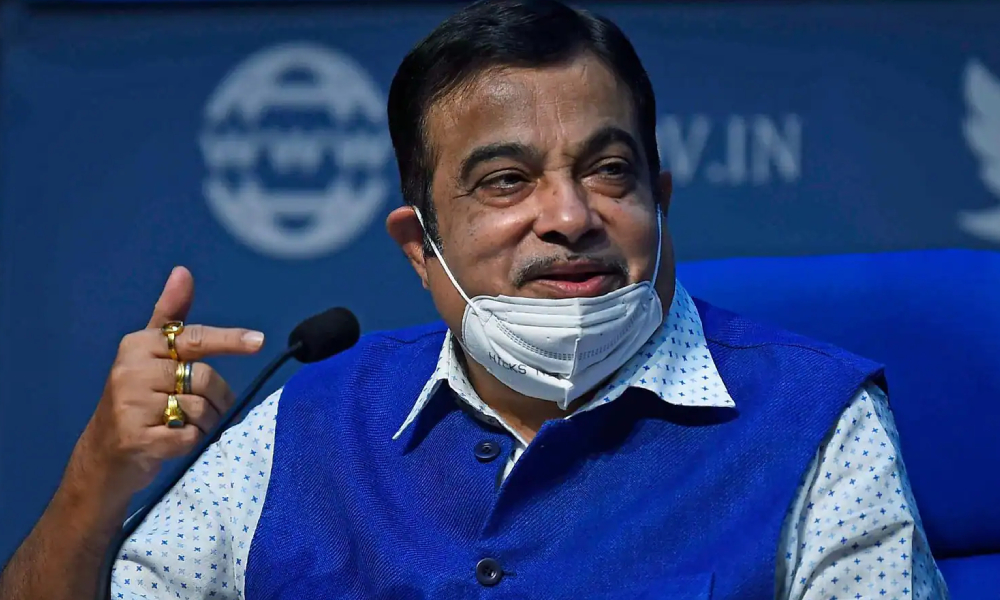
Image Credits: LiveMint
Work In Progress: Gadkari Aims To Reduce Road Accidents, Fatalities By 2030
Writer: Prattusa Mallik
A student of Journalism and Audio-Visual Communication, interested in words and silences alike, I aim to bring the narratives of the periphery to the centre, one story at a time. When not working, I'm usually caught reading, thinking, writing, watching Friends, or stargazing.
India, 9 July 2021 9:16 AM GMT
Editor : Ankita Singh |
A literature lover who likes delving deeper into a wide range of societal issues and expresses her opinions about the same. Keeps looking for best-read recommendations while enjoying her coffee and tea.
Creatives : Prattusa Mallik
A student of Journalism and Audio-Visual Communication, interested in words and silences alike, I aim to bring the narratives of the periphery to the centre, one story at a time. When not working, I'm usually caught reading, thinking, writing, watching Friends, or stargazing.
The ministry is hopeful that it will reduce road accidents in the country by half by 2025. Gadkari gave the example of the success of Tamil Nadu, which has reduced road fatalities and accidents by a whopping 53%.
Union Minister for Road Transport and Highways Nitin Gadkari stated that his ministry has pledged to reduce road accidents and resultant deaths in India by at least 50% before 2025. Gadkari was speaking after launching a webinar series on Wednesday, where he also praised Tamil Nadu for having achieved this goal already.
The webinar series that Gadkari inaugurated was at an International Virtual Symposium on Vehicle Crash Safety organised by MIT Art, Design and Technology University.
According to Gadkari, his ministry aims to provide safer roads by constructing highways with 4-16 lanes. They are also prodding automobile manufacturers to implement newer technologies for safety.
Vision To Eliminate Road Fatalities
The minister said, "The target is to reduce road accidents by 50 per cent before 2025, and we can achieve zero deaths due to road accidents by 2030," as reported by Firstpost.
The minister said they wanted to work on the vision to eliminate all road accident deaths by 2030. He also gave the example of the success of Tamil Nadu, which has reduced road fatalities and accidents by a whopping 53%.
But how are the other states performing in terms of road accidents?
States With Highest Rates Of Accidents
According to a report released by Statista, the highest number of road accidents in 2019 were recorded in Tamil Nadu, with over 57,000 reported road accidents. It was followed by Madhya Pradesh, with over 51,000 reported cases. Notably, most of these accidents were caused by over-speeding.
When it comes to deaths due to road accidents, the situation is no better. The last state-wise data about road fatalities was released by the Ministry of Road Transport and Highways in 2018.
The state with the highest number of deaths per year was Uttar Pradesh (with 25,000 deaths), followed by Andhra Pradesh (16,000), Tamil Nadu (15,000), Maharashtra (13,000), and Karnataka (9,500). The number of daily deaths in these states ranged between 26-70, and the interval between two consecutive road fatalities in each state ranged between 20-90 minutes.
With so many road accidents and fatalities taking place daily, an obvious question that comes to mind is, how does India stand in terms of accidents globally?
India: Country With Highest Number Of Road Accidents
In a Press Information Bureau (PIB) release published on February 9, Gadkari said India ranks one in road accidents globally, ahead of the US and China. Over 4.5 lakh people get injured in road accidents yearly, and around 1.5 lakh die. The average number of deaths per day stands at 415, and 70% of these deaths are in the age group 18-45 years. What's most alarming, the socio-economic loss from these accidents is 3.14% of national GDP.
Coordination Is Key
The recent developments in Tamil Nadu suggest that some things might have started to change for the better. Perhaps the Gadkari ministry understood it well that for a comprehensive solution, the ministry must work in tandem with other related units. As reported by the PIB release, Gadkari had said that improvement in education, enforcement, engineering, and emergency care services are a few steps towards tackling the problem.
The minister had also mentioned that the ministry had been correcting over 5,000 accident blackspots identified on the highway network. At the time, more than 40,000 km of roadway was being audited for safety. He further noted that the central government had proposed a state support programme that would incentivise the states to improve road safety, with a fund of Rs. 14,000 crores.
However, he also remarked that road safety — on a larger perspective — road safety is a "behavioural issue" and hence need cooperative federalism to encourage coordination, starting from the block to the taluka level.
Also read: Now, Bengalureans Can Pay Their Traffic Fines Using Paytm
 All section
All section














